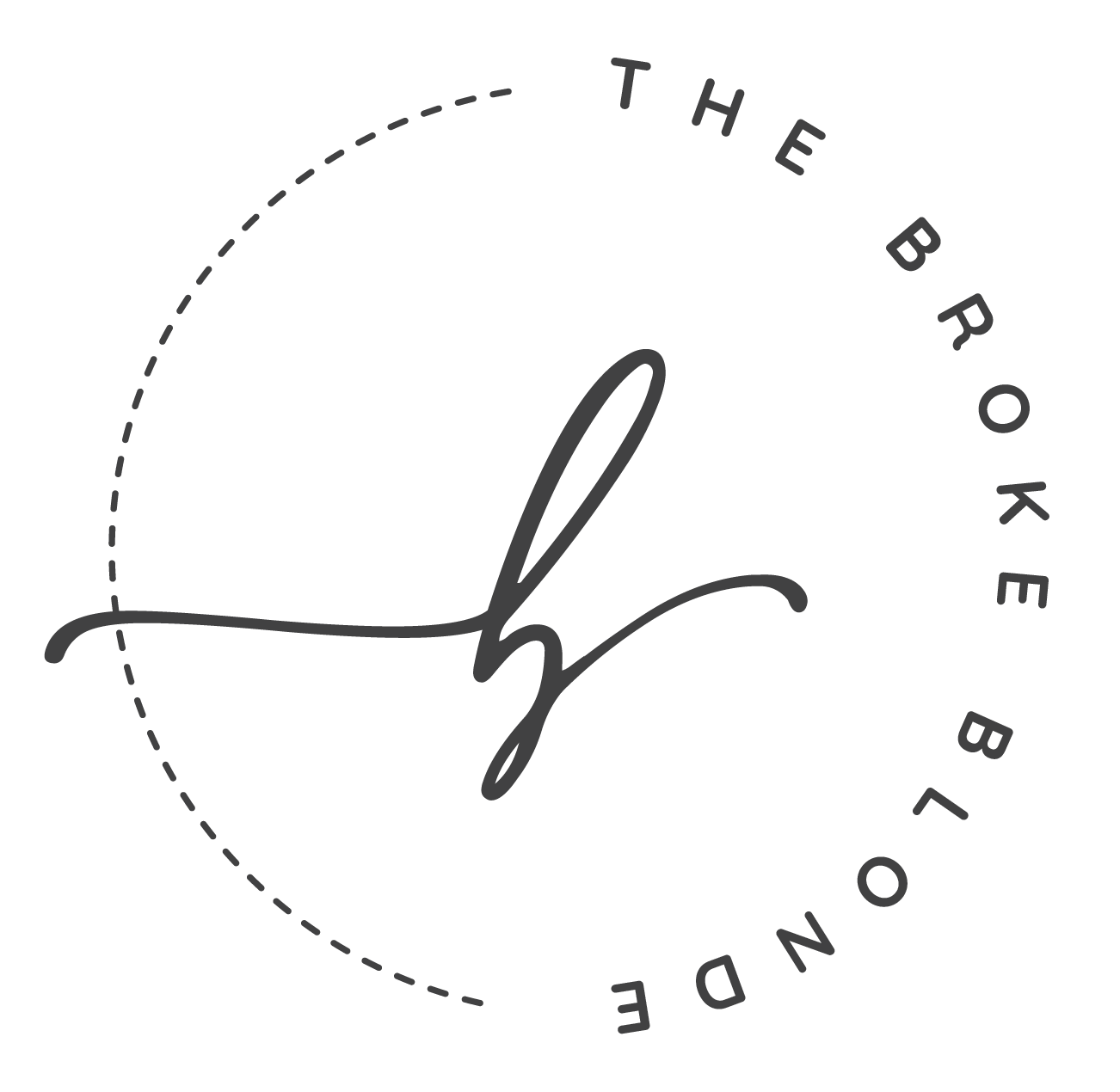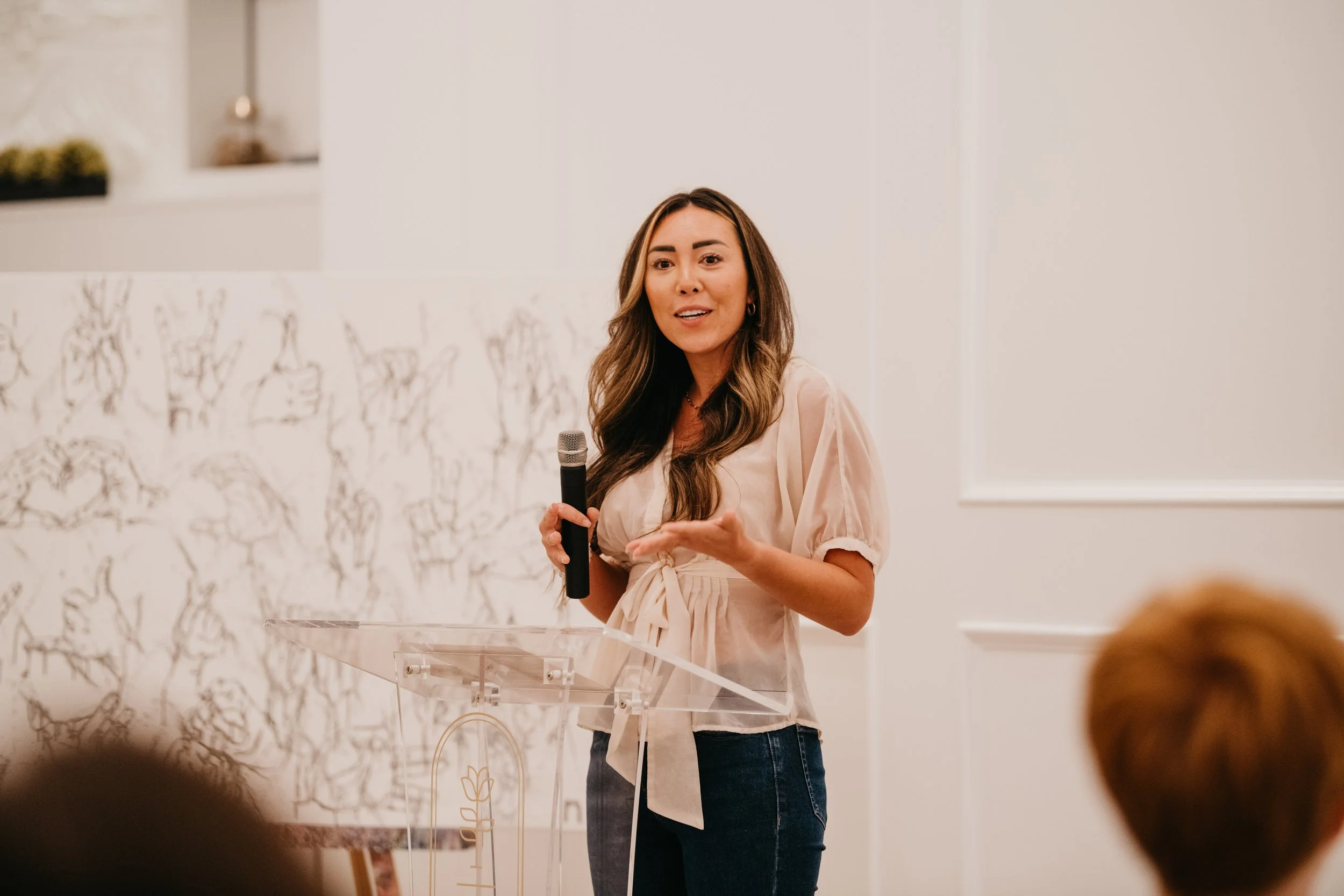Fall Social Recap
3 Big Lessons I’ve Learned In Event Planning:
This list could be a million miles long but I’ve narrowed it down to 3. Aside from costing a lot of money upfront, the three key things I’ve learned are Communicate, Communicate, Communicate, before, during, and after.
Communication before looks like sharing your idea and vision with EVERYONE. Of course, we eye roll when I say share it on social media, but we also can’t ignore it. Share your ideas with the venue and your speakers, and lastly but quite importantly trusted friends and family.
Sharing on social media can feel intimidating, I still get worked up about it just thinking about doing it, but the truth is only 3% of your audience sees your stuff frequently, so you need to be sharing 3x the amount you think you should.
Some reasons I feel uneasy or uncomfortable sharing on social media:
I was unclear about my offer
I lacked confidence in my idea
I felt as if I was selling
Being unclear in your offer adds to confusion on the recipient's end. If you’re not sure what exactly you’re offering how are others supposed to get excited with you? I’ve been there and it took coaches to help me see through my gaps. Because your audience members aren’t mindreaders if you’re unclear they don’t know. It goes back to the four stages of competence, people don’t know what they don’t know and it’s your job to tell them!
When you’re unsure about your idea, similar to lack of clarity you need to take time to reflect, reframe and refocus on the result you’re trying to achieve. Once you have a clear vision of what the target result is and who it’s going to affect you’ll gain more confidence knowing those who are responding know exactly what you’re delivering.
Lastly, it feels “sales-y”, which is a big hurdle I fight with often. The feeling of selling makes me sweat a little and want to shift in my seat, but it’s how you frame it. Are you forcing someone’s hand to pay? No, it’s their own choice, you are simply putting the offer out there. And if you’ve heard this before and are rolling your eyes, BEEN THERE! Another thing that has helped me, is before I go on social or email or wherever it is I’m going to share, I look for proof, if this is your first-time look at someone who has gone before you and celebrates them, think “they’ve done it, so can I”, say it a loud… yes you’re going to feel silly but it helps. If this leads you down a comparison trap step away and go back to WHY you are doing what you’re doing.
If this is your second or any number other than 1, look for proof in your history book. Your brain looks for patterns and proof, so look for evidence. See the challenges you’ve faced the first time and recognise how you got over them. For me, I learned I need a longer runway and to show up more frequently.
I use numbers to help my brain process:
The proof I use numbers, 3% of my followers see my content.
People have told me time and time again about the experience they had at my events
There’s been over 100% growth rate over my events
Before you go on social and give 110% give yourself 110% go have a dance party, hype yourself up, and bring the fire!
Next is communicating with your venue, before the event and sharing your ideas and your vision, as for seating options, dinner options, etc.. the clearer you are the easier it is for them to follow the plan of your layout. Also be sure to show up, before your “room” booking time. I learned this the hard way when I created my first event. The room was set up incorrectly but because I only gave myself a 30min buffer between our booking time and our start time it didn’t leave room for changes. By arriving beforehand you are giving yourself time also to set up what you need and work with the venue who is coordinating the event for you. Also, there will be attendees who show up early, so it’s best to be prepared for them ahead of time, give yourself time, at the rate I’m going I would say 90mins before the event, or ask the venue ahead of time when they’ll start setting up.
Communicate with your speakers, this is still one I’m working on. I am selective over who I choose to be a part of my events, in turn, I have full trust in them. While this is liberating for the speakers it can also be confusing and a bit overwhelming. It is important to give them structure and key topics you’d wish for them to cover in their area of expertise along with an ideal timeline, of how long they are to speak for and when they are speaking. Especially when working with first-time speakers, it’s important to make it more of a collaborative effort so they feel supported the best they can. I enjoy being a place where other women can shine and an environment for them to try out their wings — the same way I am, and if you’re reading this likely the same way you are! There’s going to be trial and error so be open to feedback.
However, it’s important to guard your heart and know the difference between feedback and criticizing opinions. Feedback is often coming from a place of experience and wants to be a source of guidance to help you succeed and move forward, whereas opinion comes from a place of entitlement and judgment with little to no support on how to make it better. At the end of the day, whether it’s feedback or opinion, it’s your vision and you can create it however you desire.
Communication during an event is what helps things run as smoothly as possible, for the venue, this looks like the order of service, food timeline, allergies, change of seating, etc… This cannot be over-communicated no matter how many work orders you have you may still end up with beef rather than chicken…and you just have to roll with the punches. When you’re coordinating with speaker timelines it can be a good visual and subtle cue to the speakers when they should be wrapping up their session ie: salad will be served, which is your 10 min marker.
In this particular case, I would be wary, it was good in theory but the salad turns out to be quite noisy so next time I will opt for the soup or simply suggest bread rolls come out first so the guests don’t become distracted and they lose part of the session.
Timelines may run ahead or behind schedule as well so it’s important to have a main point of contact on the day, so you can keep communicating with them during the day the last thing you want is for your guests to leave hungry…or thirsty.
Another important part of communication during the event day is any wingmen you may have to help you run the show whether it’s music or mics, tech, or anything else that may be required it’s good to have point people so you’re not running around like a chicken with its head cut off.
And of course, your GUESTS, are your primary point of communication during an event. My mission and vision are that everyone has felt seen and has left with a new contact or even better a new friend. This means from the time doors open no one is left alone (unless they are off to the toilet) — This plays into the timeline piece and making sure you’re ready to receive…still something I am improving on.
Let your guests know the important bits and pieces, food, timeline, washroom locations, etc… this will all enhance the experience.
At the end of the event Thank you and feedback is what I like to do, I want to ensure the people that need to be thanked are recognized and if feedback is needed (or compliments) it is all said. I also like to offer a space for attendees to give feedback so I can learn and improve as well. I like to do all of this within a week so it’s fresh in everyone’s mind including mine. Within 10 days I like to debrief, whether it’s with a friend or team member verbally processing the day helps notice gaps and places for improvement and I also feel it gives space to new ideas and energy to grow.
One thing I’m working on for the next one is to ASK more. I’m working through my fear of rejection and reminding myself the worst they can say is NO, and that’s not a reflection on me or them, it’s just not the right time.
I hope this helps!








